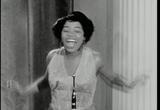
by Liz Rosenberg
For the last eight weeks, our 78s Dating Team has been combing through the history of musical recordings. Among our 78s collection of 188,000 sides sat a backlog of 40,000 discs in need of more data. Our team of book scanners, locked out of their libraries, got to work, pouring through guides to find a review or publication date. Often, discographies revealed nothing. That’s when our team turned to web sleuthing. What we discovered is that behind each disc lies a story—sometimes hidden, mostly forgotten with the passage of time, often magical.
Here are some of our favorites:
Gloria – David Miranda
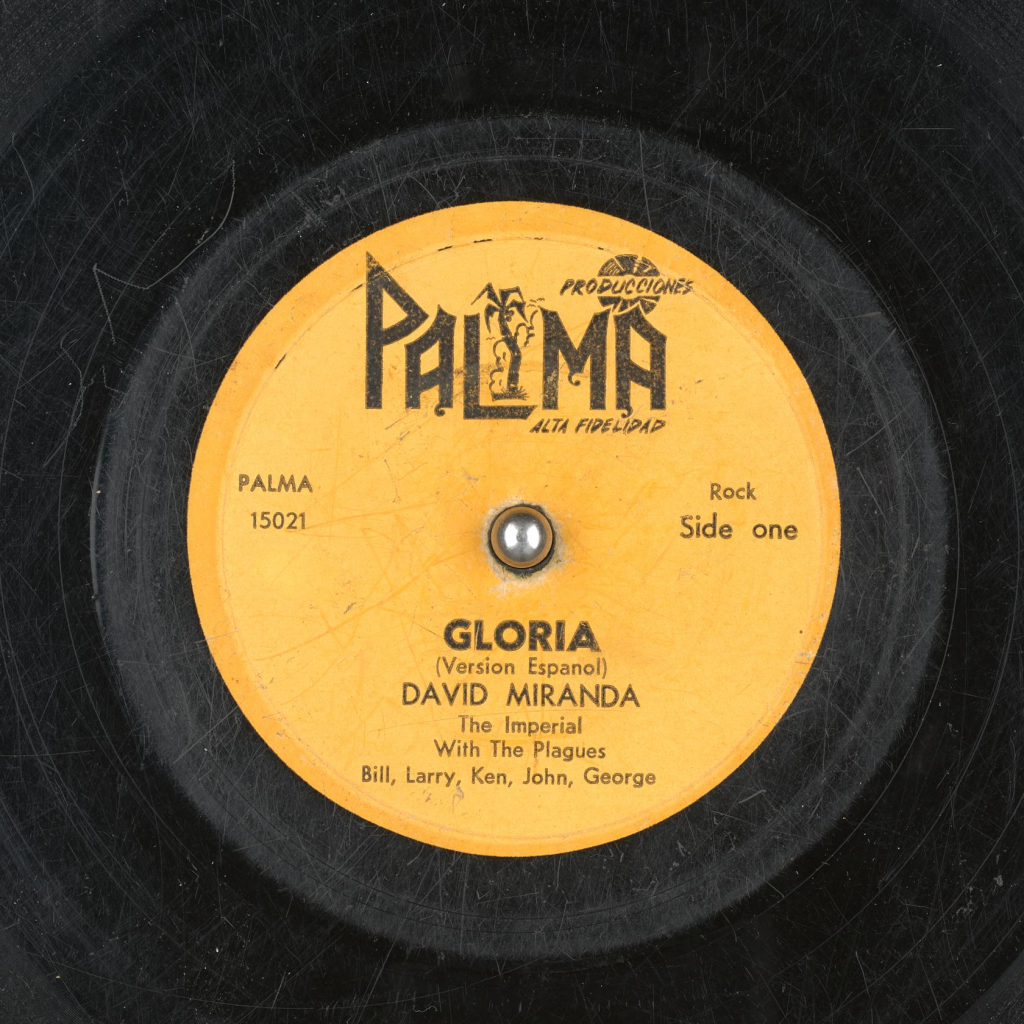
Released in 1966, just two years after the original version written by Van Morrison was released by Them, this version of Gloria is a cover completely in Spanish. The long list of covers of this song throughout history, including versions by Patti Smith and The Doors, rarely includes this version. Gloria provides strong evidence that rock and roll music had gone global by the mid-1960s.
Giter Bruder nicht gechapt – Frau Pepi Litman
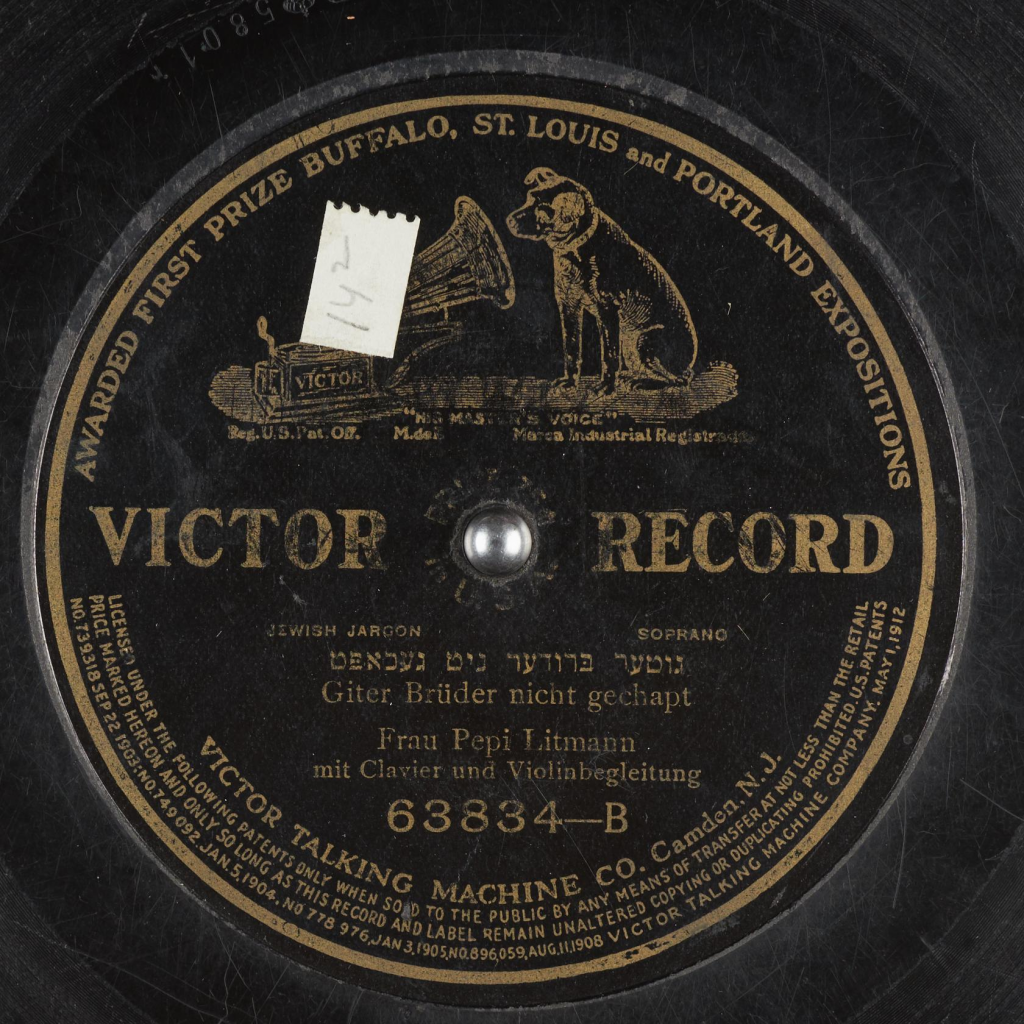
Giter Bruder nicht gechapt is a Yiddish theatre song from 1907. According to the translation, this song is about how to deal with sexual harassment, as told by cis-female, cross-dressing Yiddish Vaudeville star, Pepi Litman (1874-1930).
The chorus, roughly translated:
Good brother, don’t grab, grabbing is no good.
If you grab I’ll hit you back, I’ll beat you bloody.
Oy, you’ll get beaten up, your head will fall off.
Then you’ll know, young man: if you grab, you’ll get burnt.
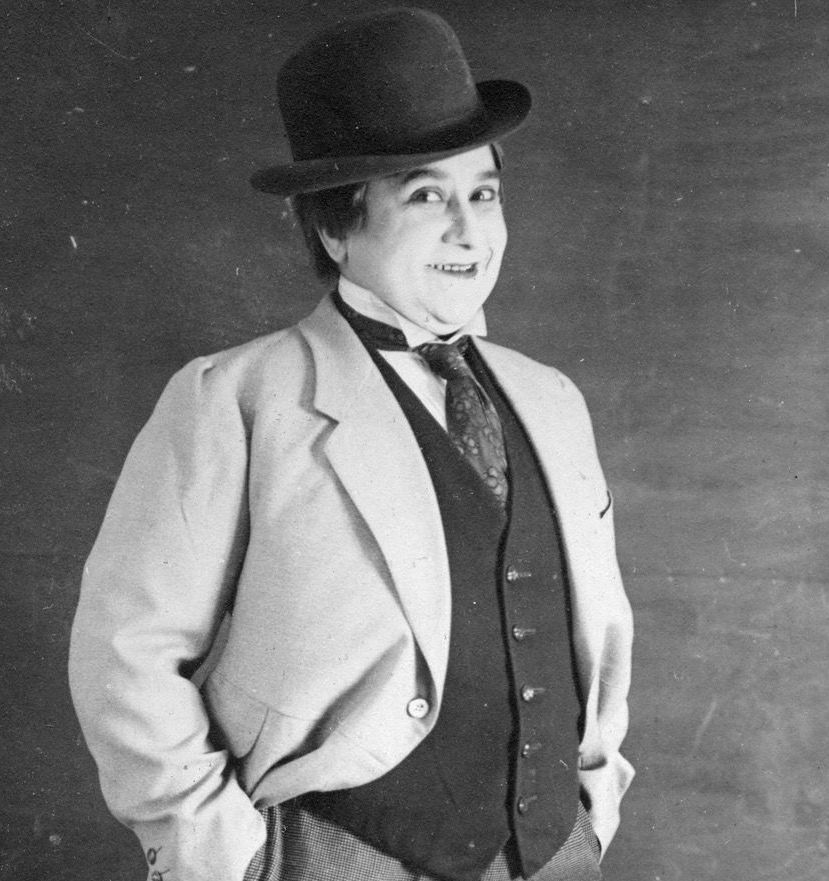
Pepi was known for performing in men’s clothing on stage and is often considered a proto-Drag King. Really cool to find such an early example of drag performance, from a Jewish vaudeville performer popular more than 100 years ago!
Up Above My Head – Sister Rosetta Tharpe
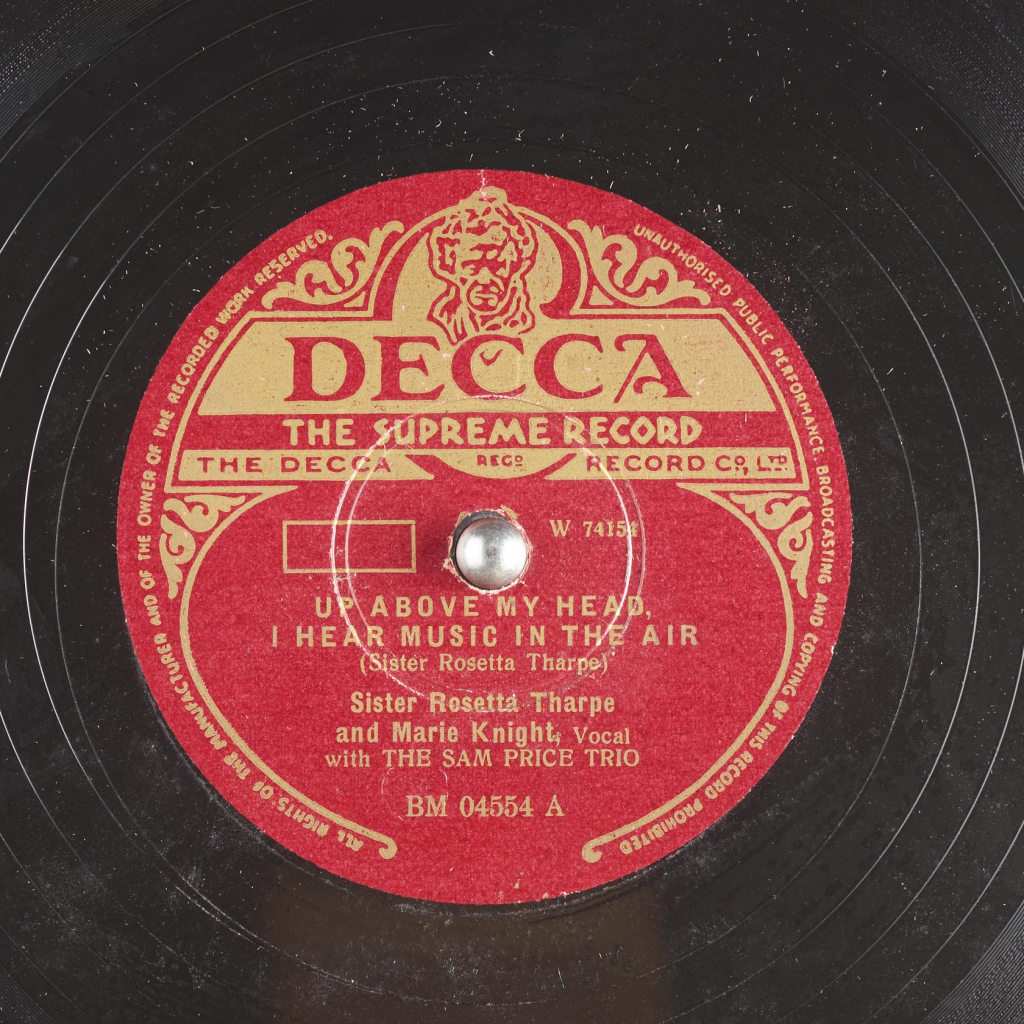
Sister Rosetta Tharpe is often considered the “Godmother” of Rock and Roll guitar and singing. Rock and Roll pioneers, Little Richard, Chuck Berry, Elvis Presley, Carl Perkins and Jerry Lee Lewis credit Sister Rosetta for inspiring their musical styles. But Sister Rosetta has only recently been recognized for her contribution to the genre—inducted into the Rock and Roll Hall of Fame just two years ago.
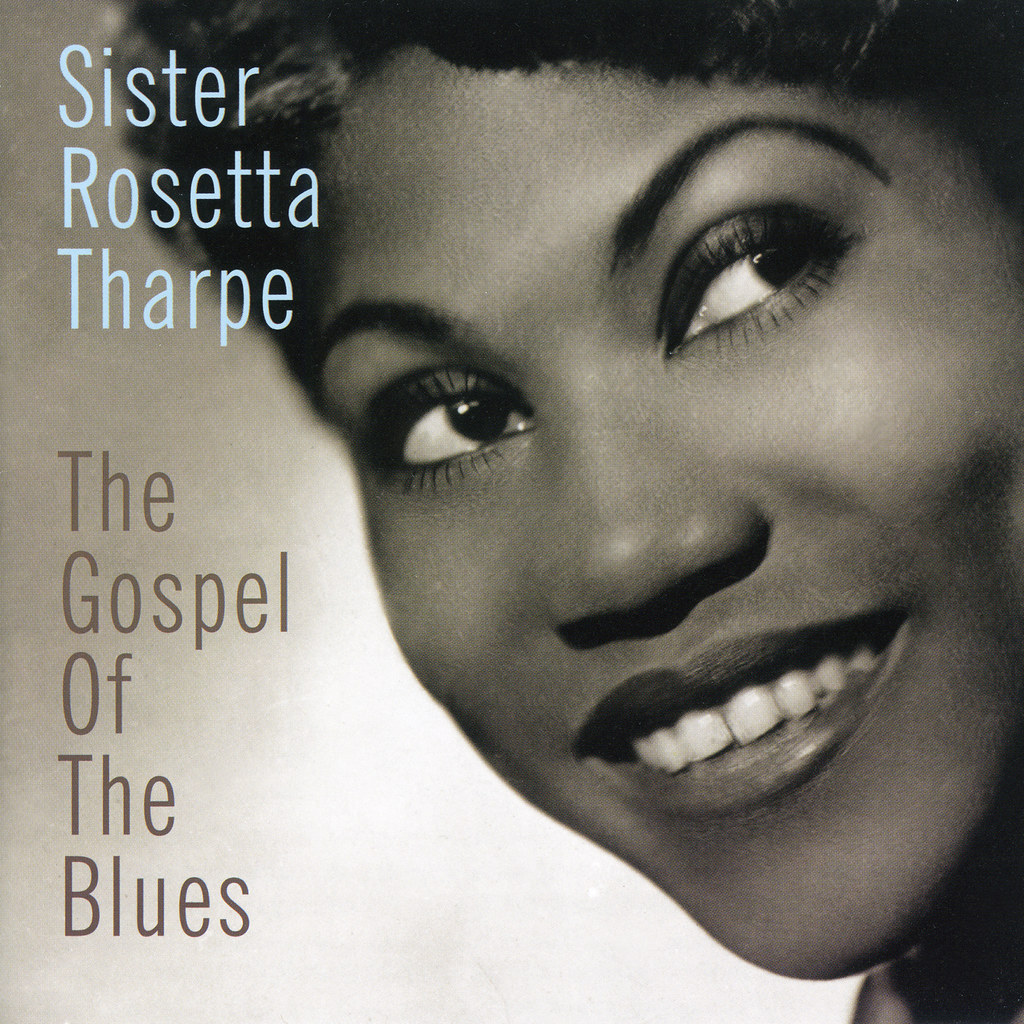
A guitar prodigy in her church community, Sister Rosetta became a household name in gospel music at a young age and ruffled feathers when she transitioned to more secular music. At a time when it was difficult to be a Black, female, electric guitar player, Sister Rosetta broke every conceivable boundary on her road to success. On an early tour across the United States she had a kitchen and beds installed in what may have been the first music tour bus. Why? Many venues would not allow her to have a meal in their establishment because she was Black. Just like her powerful voice, Sister Rosetta was a force of nature that could not be stopped.
Sitar Pooria Kalyan – Pandit Ravi Shankar
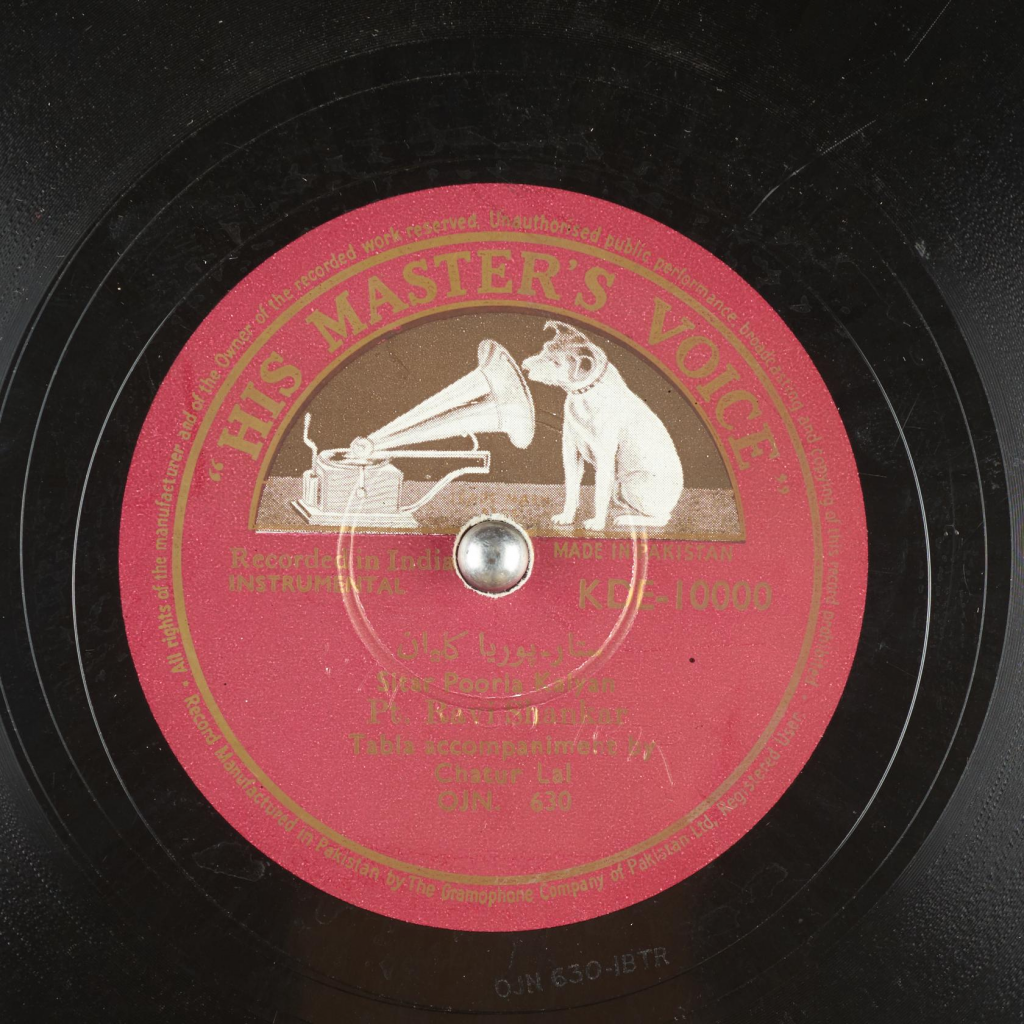
You may know Pandit Ravi Shankar as the sitar virtuoso who taught George Harrison of The Beatles how to play the sitar. While dating the 78s, we stumbled upon this fantastic record featuring Shankar’s absolute mastery of the sitar. Pressed in Pakistan and recorded in India, this 78 recording is a rare gem.
After You’ve Gone – Sophie Tucker
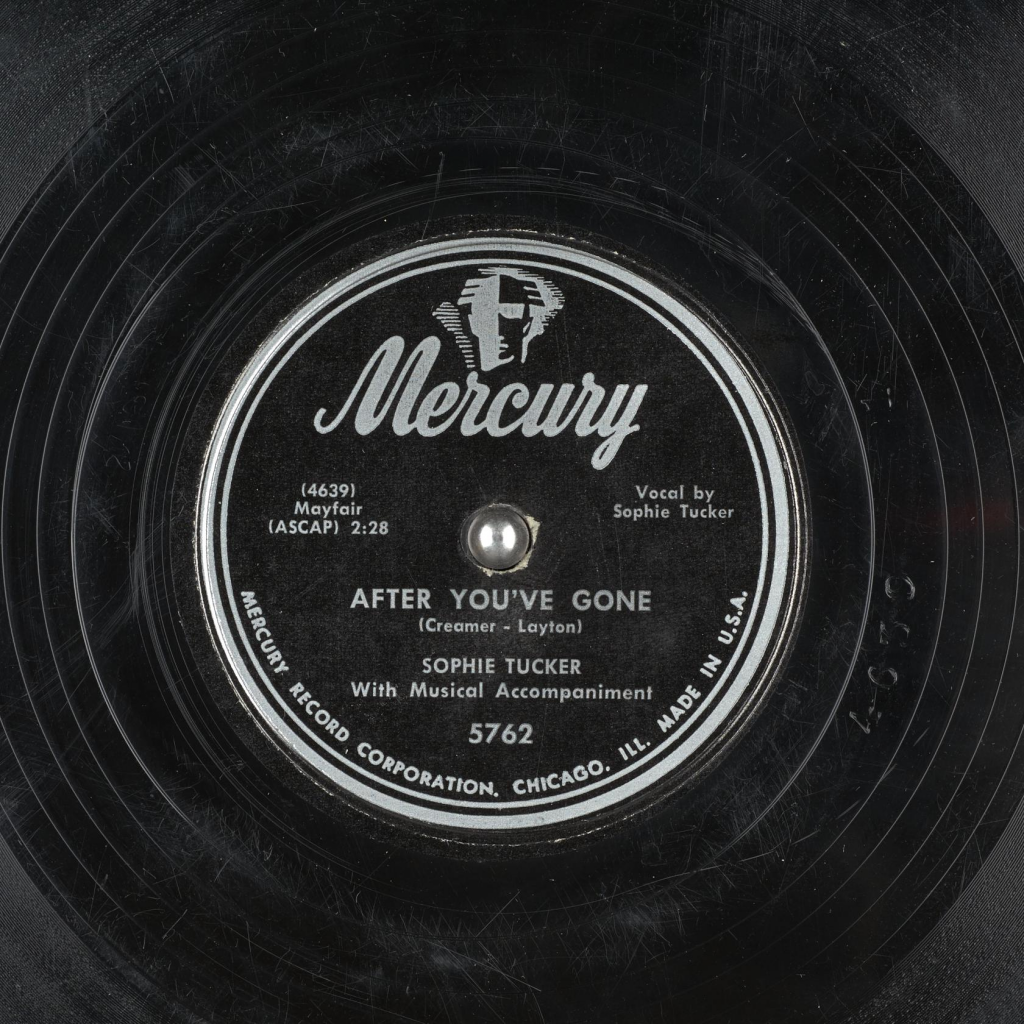
Known as “The Last of the Red Hot Mamas,” Sophie Tucker was an amazing vaudeville/Jazz/Jewish singer who was hugely popular in the 1910s-1930s. She toured internationally and often played to Jewish crowds, singing in Yiddish. Her Yiddish records were banned during Hitler’s era for evoking Jewish culture. Tucker had a lengthy career in show business even after the vaudeville era died out, performing up until just weeks before her death in 1966 at the age of 80. This is a 1951 re-recording of a song from her heyday, originally recorded in 1927.
Cigareets, Whuskey and Wild Wild Women – Red Ingle and The Natural Seven
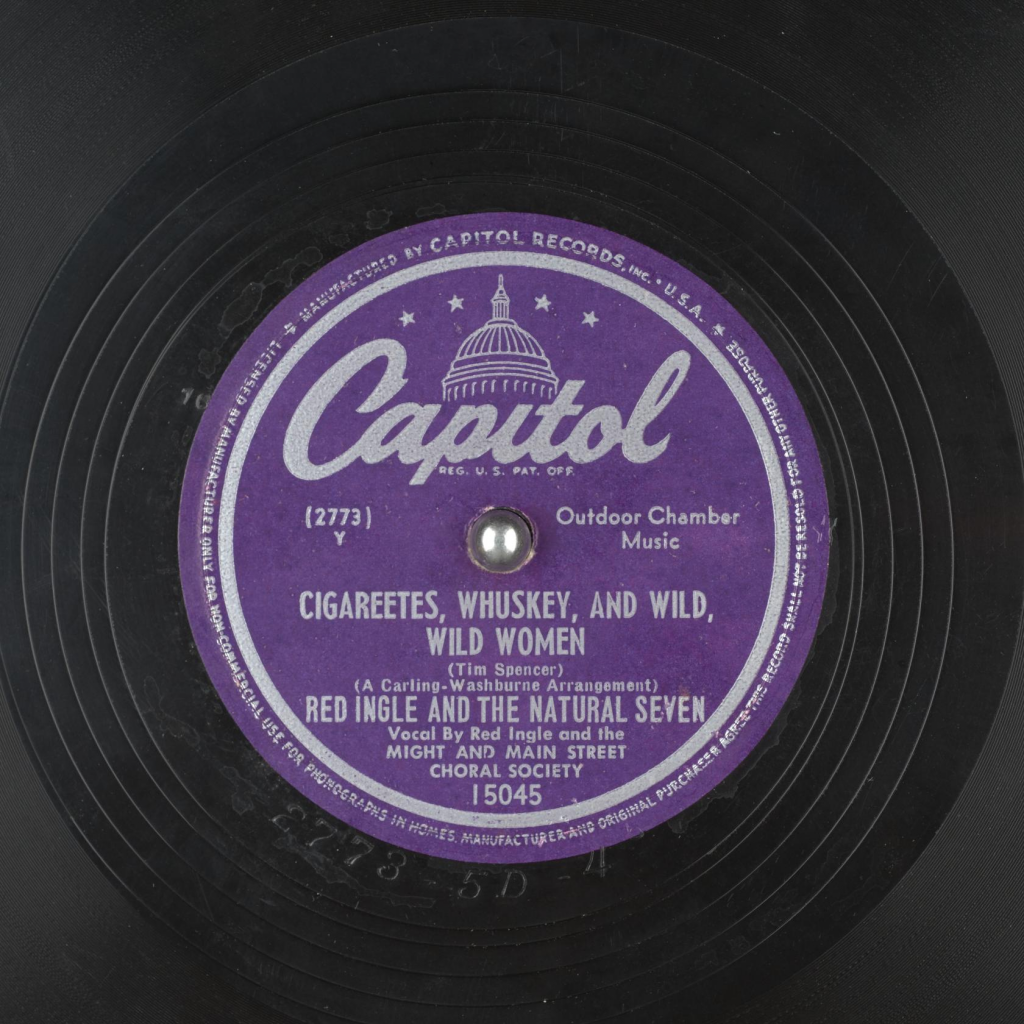
This is probably the wildest song I have found in the 78s collection! So wild in fact that it was banned from all major radio networks as “immoral and wicked.” What radio censors didn’t understand was that Ingle was poking fun at smokers, drinkers and philanderers. Thanks to their ban, his single became a big hit. Red Ingle is one of the more prolific novelty and comedy performers of the late 1940s and early 1950s, having started with Spike Jones and His City Slickers. Enjoy this lovingly restored version!

Pis satoes selaka logang (One Hundred Coins in a Silver Bowl)
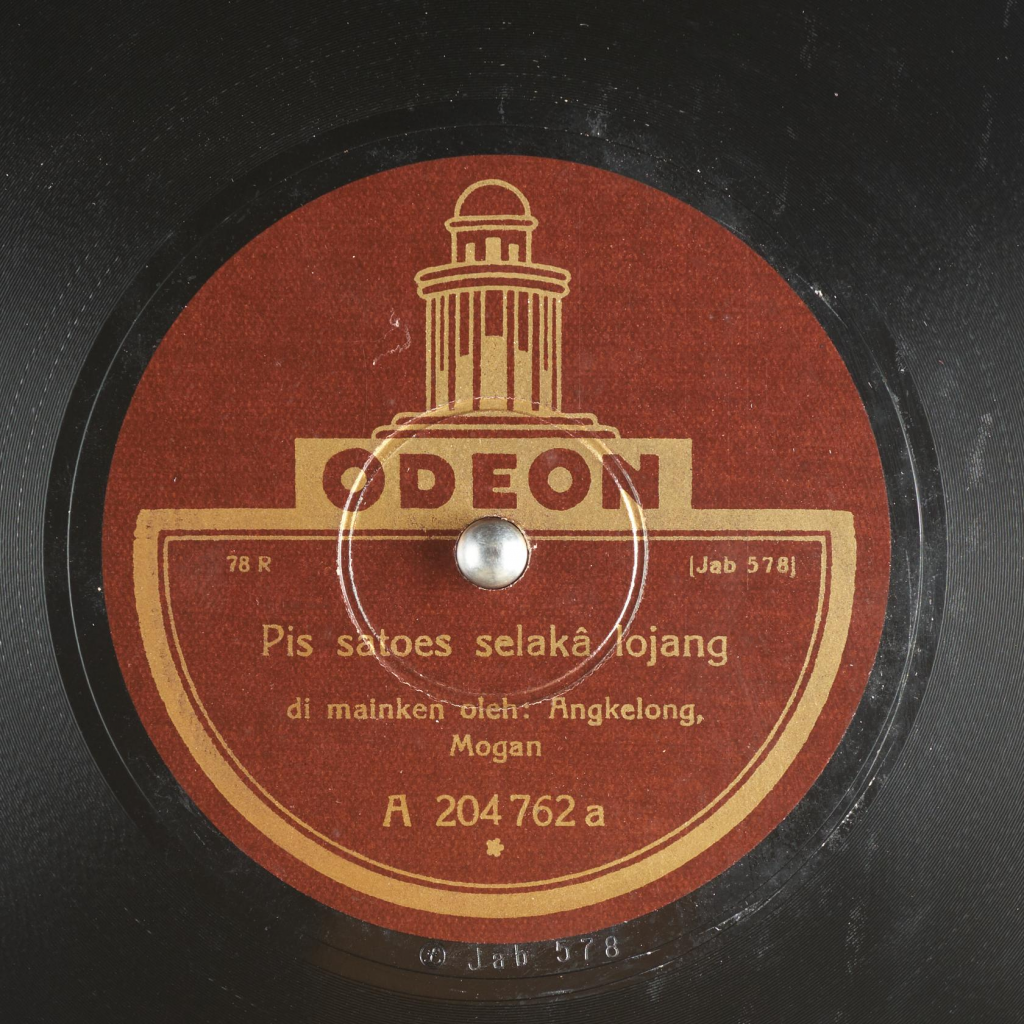
This record comes from a complete set of Balinese gamelan music from 1928. Gamelan is a type of percussion ensemble traditional to the Javanese, Sundanese, and Balinese cultures. Described as music for temple festivals and death rituals, the set is the first and only commercially released Balinese music prior to World War II. We were able to find the descriptions captured by the ethnomusicologist who recorded this set and even found films made of the performances in the early 1930s!
The Okeh Laughing Record
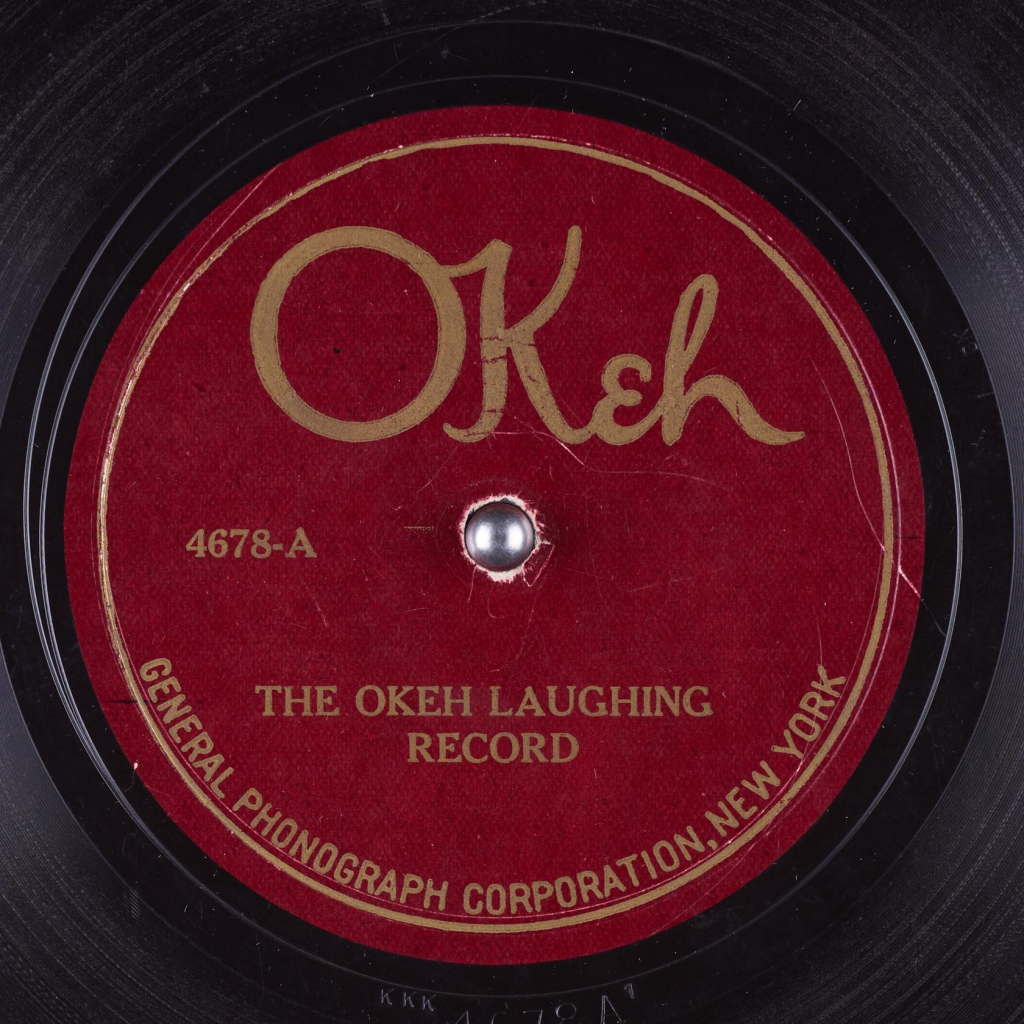
One phenomenon that the 78s Dating Team discovered was the “Laughing Record.” Throughout the collection we kept coming across records with seemingly little content aside from people laughing hysterically (or manically depending on your impression). As we discovered more and more versions of these slightly creepy recordings, we looked more deeply into their origins. It turns out that The Okeh Laughing Record is one of the most enduring novelty records ever recorded! The Library of Congress researched its origins and traced it to a recording made by an opera singer in Germany in 1920. Nobody knows why the original performers were laughing, but that is the beauty of these recordings—laughter is a universal language. The Library of Congress estimates that more than one million pressings of this record were sold. To learn more about this mysterious, maniacal genre, read the Library of Congress essay here.
Hound Dog – “Scat Man” Crothers

Everyone knows the famous Elvis Presley tune Hound Dog that skyrocketed to fame in 1956, but they may not have heard of this version sung by “Scat Man” Crothers. That’s because Crothers is a sound-alike singer for the Tops budget record label! Tops was one of many record labels that made its profits by recording knockoff covers of hit songs with sound-alike singers, for sale at a discounted price. Tops would even squeeze four songs onto each record—a big bang for your buck (or rather, 39 cents, the price tag on a Tops record in the 50s)!
Got a Great Big Shovel – Shorty Muggins
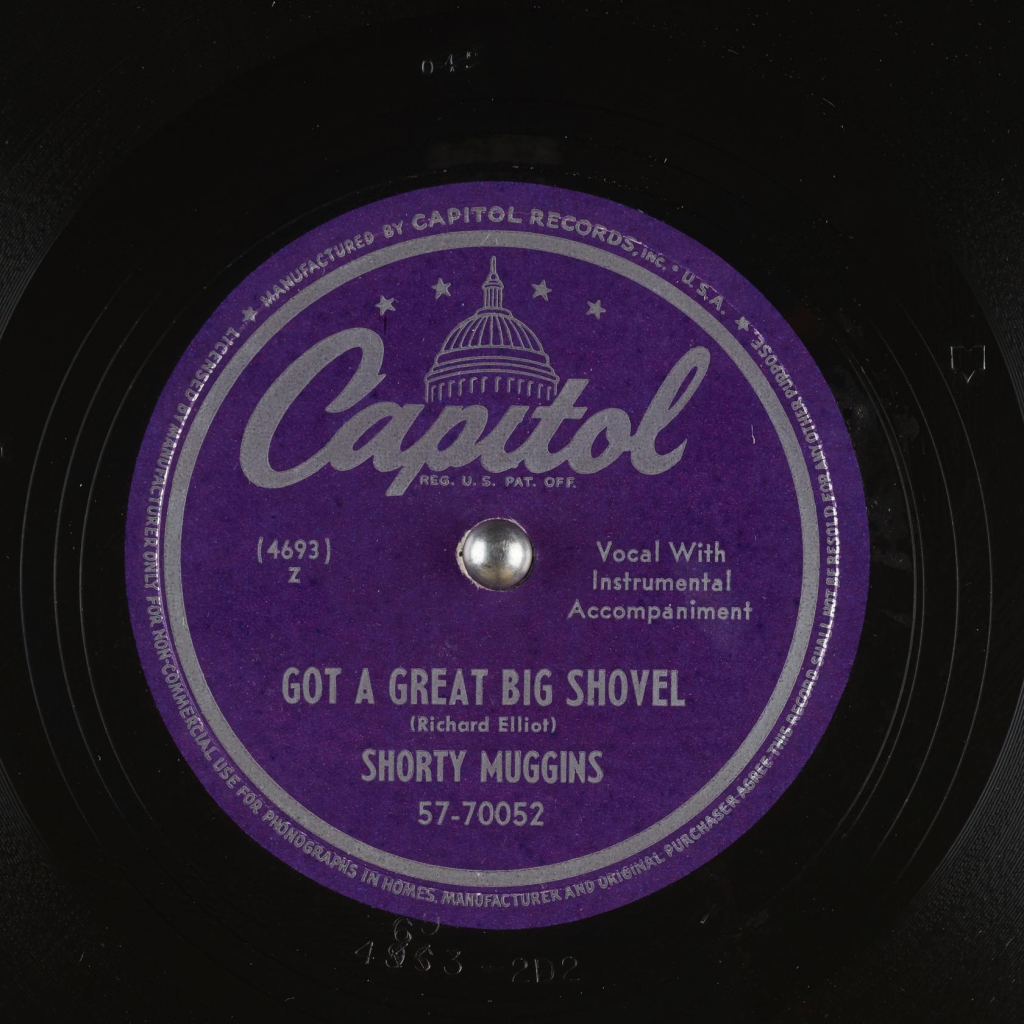
We discovered this fantastic record from 1949 by someone named Shorty Muggins and immediately wondered about Shorty’s background. It turns out Got a Great Big Shovel is one of only four sides recorded by jazz performer and member of The Rat Pack, Sammy Davis Jr., under the pseudonym “Shorty Muggins.” He only recorded under this name for Capitol to separate his blues recordings from his other work. This record is a great early snapshot of a little known part of Sammy Davis Jr.’s prolific career.
EPILOGUE: To date, the 78 Dating Team has added 13,272 reviews to the 78 Collection, including recording dates and interesting historical information. You’ll find our 13,000 reviews, like hidden nuggets of gold, tucked away after the item description.
78 DATING TEAM: Alex Paananen, Annie Coates, Anthony Young, Cheryl Creed, Chris Moses, Joe Ondreicka, Mike Wankoff, LaDonna Hartmann, Lauretta Doellman, Mandy Weiler, Osamu Sueyoshi, Richard Greydanus, Tabby Garbutt (for a few days!), Taylor Kelsey, Zelda Lacoss, Tim Bigelow – manager!

ABOUT THE AUTHOR: Liz Rosenberg is an audio engineer and audio archivist based in Philadelphia, PA. She helped start the Great 78s Project as a transfer engineer and project lead and now leads the 78rpm Dating Blitz Project. Liz also enjoys operating audio, video, lighting and projection for live events in Philadelphia, as well as producing music in her home studio.
